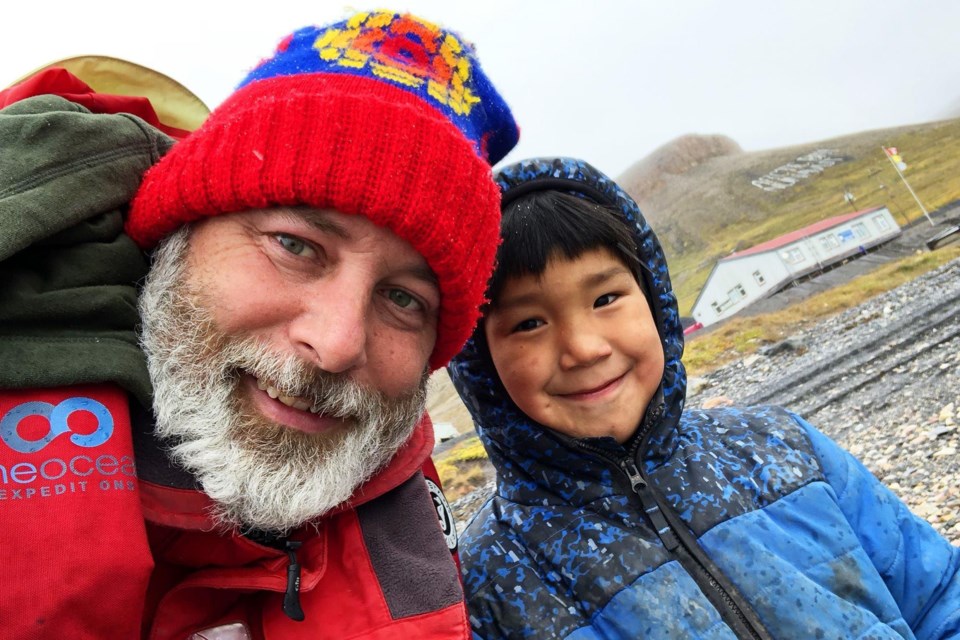Today is International Inuit Day — in the Inuktitut language: ᐃᓄᐃᑦ ᐅᑉᓗᐊᓂ — and a day to be celebrated across Canada and around the world.
For most Canadians, the seemingly far away northern Arctic region of our country may seem like a cold and inhospitable place, but it's warmed by the presence of wonderful and fascinating cultural nations known collectively as the Inuit.
Back in the summer of 2018, my wife and I, being the nature lovers that we are, embarked on a northern adventure aboard an icebreaker to visit the high Arctic in search of polar bears, musk ox, beluga whales, narwhal, and more.
We certainly captured much of the wildlife with our cameras while there, but a highlight was visiting communities that included Grise Fiord, the most northern community in Canada, which is located on Ellesmere Island in Nunavut, and Arctic Bay on Baffin Island.
We were grateful to speak with residents and hear about their history and to be invited to watch their throat-singing performances and listen to their music and storytelling while there. The low boom of the hide drums and the quiet wisdom in an elderly voice was a treat for us all to hear, all while laughing children ran about.
Their elders hold a high place in their society, with their knowledge of history, customs, and language handed down by many generations through stories. The Inuit historical record has always been one of conversation, from father to son, mother to daughter.
The rest of Canada could surely learn a valuable lesson from that when it comes to the treatment of our own parents and grandparents in our southern towns and cities.
Today, the Arctic is under threat from all directions by resource exploration, geopolitical stresses and climate change.
The Inuit, of course, are the capable stewards of their homeland and the delicate environment in that region and have been for thousands of years. Their continuing self-governance is key to that management.
It hurts my heart to read and hear of the modern struggles they face. They are often an afterthought when it comes to issues of proper infrastructure, housing, and clean drinking water.
We need the federal and provincial governments to stop with the talk and move ahead with action on these fronts, because these proud people have so much to offer the world through their art, sense of family and community, and a vast knowledge base of the north handed down through many generations to today.
Inuit cultural identity itself is under threat as well, as people flee south for work, education or to just simply escape the harsh economics of the sky-high cost of living in the Far North. Others leave where they are from due to a desire to escape brought on by the inter-generational trauma of colonialism.
Muckpaloo Ipeelie, an Inuit cultural teacher and owner and operator of The Urban Inuit Identity Project, moved from Iqaluit, the capital of Nunavut, to Ottawa in 1988 when she was three months old. Her mother was a residential school survivor. She now calls Collingwood home.
Her hope, as she told me, is that “on Inuit Day, Inuit get the recognition for being a distinct group of people with distinct cultural practices and language, which is something to be proud of, because our ancestors were super tough and had to survive extreme conditions, so we are beyond resilient, and I think that is something to celebrate and be proud of."
With Ipeelie’s Urban Inuit Identity Project, she works to provide culture resources to people involved in the circle of care of Inuit people, especially Indigenous organizations, to help give them the resource tools to provide culturally appropriate care for Inuit clients when they come into Simcoe County, and wherever else it is needed, as there are many Inuit in southern Ontario from the Sixties Scoop.
“It wasn’t their choice to be down here, or they are here due to the justice system,” she said. “No matter where we are, we should have connection to our culture.”
They are no less deserving of the respect and admiration that we afford other communities, as we are all fellow citizens of Canada.
Our experiences on the journey along the Northwest Passage that summer gave us a whole new understanding about the north and its people and the love that we have for them.
We all need to shine a light on northern Canada and its communities, and not just today but every day.
Kevin Lamb is a Barrie-based photojournalist and regular contributor to BarrieToday.



